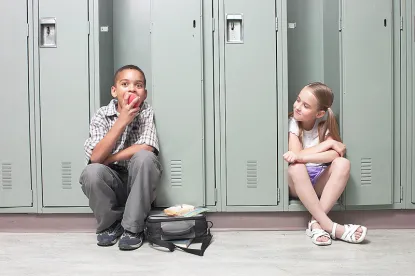Congress Considers Extension of Perkins Loan Program
The Federal Perkins Loan program will officially expire on September 30 unless Congress steps in to reauthorize the program. The program, which grants loans to students with exceptional financial need, was authorized until the end of FY 2014 as part of the Higher Education Opportunity Act of 2008. However, a provision in the General Education Provisions Act provided that, in the absence of legislation to extend or repeal a program administered by the Department of Education, the authorization of a program’s appropriations is extended for one additional fiscal year beyond its expiration date. Given that no action was taken last year, the authorization for the Perkins Loan program was automatically extended until the end of FY 2015, but now the program is set to expire at the end of September unless legislators take action.
On September 24, Reps. Mike Bishop (R-MI) and Mark Pocan (D-WI) introduced legislation to extend the Perkins Loan program for one year. The bill – named the Higher Education Extension Act (H.R. 3594) –also has received bipartisan support from House Education and the Workforce Committee leaders. While leadership had indicated it could get done quickly, momentum has shifted since news of Speaker Boehner’s resignation. Though the Senate has not introduced companion legislation, several Senators have joined together in support of saving the Perkins Loan program. Senators Tammy Baldwin (D-WI), Bob Casey (D-PA), Rob Portman (R-OH), and Susan Collins (R-ME) introduced a bipartisan resolution last Thursday, September 24, to express support for the continuation of the program.
If the stand-alone bill does not move, it is possible that Congress will choose to extend the program by including language in the CR, or ultimately an omnibus bill, to allow the program to continue until lawmakers can address a longer term solution. Language regarding the Perkins program is not included in the current version of the CR.
Executive Branch Activity
Department Releases Competency Based Education (CBE) Guidance
Last week, the Department of Education released a Competency-Based Education Experiment Reference Guide for institutions of higher education that are participating in a CBE Experimental Site. In 2014, the Department launched a number of experiments under the Experimental Sites Initiative (ESI) as an opportunity to learn more about CBE and experiment with Title IV disbursement models for students enrolled in CBE programs. The guidance is aimed at helping new CBE providers as they implement the experiment. The Department also indicated that it would issue another expansion of the CBE experiment to allow more institutions to participate in ESI and it plans to gather additional data from participating institutions to evaluate the impact of CBE programs on enhancing learning outcomes, lowering college costs, and improving completion rates in higher education.
White House Initiative on Educational Excellence for Hispanics Commitments
Last Tuesday, in conjunction with the White House Initiative on Educational Excellence for Hispanics’ (WHIEEH) 25th anniversary, the White House announced a series of commitments, a new report, and a set of education data plans outlining the Administration’s work to improve the lives of Hispanics living in the US, from opportunities in early learning through job-related assistance. The federal agency commitments to action include investments made by ten federal agencies aimed to increase educational outcomes and opportunities for all students and families, including Hispanics. A full list of the commitments announced thus far can be found here.
First in the World Grant Awards and FY2016 Outlook
Last Monday, the Department of Education announced that 17 colleges and universities received awards through the First in the World (FITW) grant program. FITW is designed to support the development and dissemination of innovative solutions for how to address widespread higher education challenges, particularly for students that are at risk of not completing their degrees like adult learners, working students, part-time students, low-income students, students with disabilities, and first-generation students. The competition solicited applications in a number of focus areas, such as improving teaching and learning, improving student support services, developing and using new assessments of learning, and improving success in developmental education.
There were more than 300 applications submitted for FITW’s two competitions: development grants to seed and rigorously evaluate earlier stage innovations, and validation grants to test, at a broad scale, interventions supported by significant evidence. In the end, the Department awarded $60 million to 17 colleges and universities in 14 states. A full list of grantees can be found here.
This year may be the last year for FITW given that both the House and Senate proposed to eliminate the program in their FY 2016 appropriations bills. If Congress chooses to pass a year-long Continuing Resolution, it is possible that FITW will continue for another year, though it will remain a target for elimination in an omnibus package.





 />i
/>i

